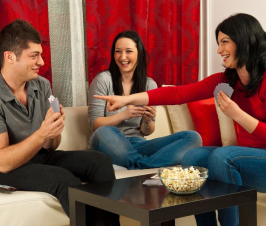Empathy is talked about a lot these days. Against the backdrop of a global pandemic and a divisive political climate in the United States, calls for empathy have become louder and more urgent. We encourage empathy for those inflicted with COVID-19 and those struggling with unemployment. We reminisce about the empathy of public figures who have recently passed away. Both Democrats and Republicans have highlighted their own presidential candidate’s empathy and accused the other side of lacking it.
But do we always want people to show empathy? Not so, said researchers from the University of California, Davis. A recently published paper suggests that although empathy is often portrayed as a virtue, people who express empathy are not necessarily viewed favorably.
“Empathy has become a sort of ‘catch-all’ for desirable personal qualities,” said Y. Andre Wang, who is a doctoral candidate and lead author of the paper. “But people’s views on empathy are actually more complicated.
“We found that what people think of empathizers depends on who is receiving their empathy. People don’t necessarily like or respect those who show empathy toward morally questionable individuals,” he added.
The paper, “Evaluations of Empathizers Depend on the Target of Empathy,” was published online in September in the Journal of Personality and Social Psychology. It is co-authored by Andrew Todd, associate professor of psychology at UC Davis.
In a series of seven studies, researchers recruited more than 3,000 participants throughout the United States. They showed these participants various scenarios where someone is sharing a personal experience with another individual. In some studies, the personal experience was negative, such as stress from work problems; in other experiments, the experience was positive, such as a recent job promotion. The individual responded to this personal experience either with empathy or neutrally. Participants then rated their impressions of the responder, such as how much they liked the responder, and how warm they found the responder to be.
Who receives empathy?
But these studies had a twist: The character sharing the personal experience was portrayed either positively or negatively. For example, in one study, some participants learned that she worked for a white nationalist organization, and other participants learned that she worked for a children’s hospital. In another study, the character sharing the personal experience was either pro-vaccination or anti-vaccination. (This particular study was conducted at the beginning of the COVID-19 pandemic.)
The researchers found that this portrayal mattered for their impressions of the empathizer: Participants liked and respected the empathizer, but only when the character receiving empathy was liked as well. When the character was disliked (as a white nationalist or an “anti-vaxxer”), participants did not like and respect the empathizer as much. In some studies, participants even preferred it when the responder condemned rather than empathized with the character.
“People are often encouraged to empathize with disliked others, but our findings suggest that they are not always viewed favorably for doing so,” the researchers concluded.
Empathy in the eye of the observer
Although empathy is widely studied, little is known about how people evaluate empathizers when they are not themselves the recipients of empathy. These findings have implications for how empathy operates in the current sociopolitical climate, where empathy is often touted as a solution to national divisions and strife.
“Is more empathy always better? Not according to our participants.” Wang said. “Our findings suggest that people see empathy as a social signal. Whom you choose to empathize with shows whom you care about and what you stand for.
“Empathy is, of course, valuable. But it is not a panacea. If people who empathize across social divides are repudiated, then empathy might not always bridge those divides. Instead, it might even reinforce them.”
1. Y. Andre Wang, Andrew R. Todd. Evaluations of empathizers depend on the target of empathy. Journal of Personality and Social Psychology, 2020; DOI: 10.1037/pspi0000341

Razi Berry is the founder and publisher of the journal Naturopathic Doctor News & Review, which has been in print since 2005, and the premier consumer-faced website of naturopathic medicine, NaturalPath. She is the host of The Love is Medicine Project docuseries, The Natural Cancer Prevention Summit, The Heart Revolution-Heal, Empower and Follow Your Heart, and the popular 10-week Sugar Free Summer program. From a near death experience as a young girl that healed her failing heart, to later overcoming infertility and chronic fatigue syndrome and fibromyalgia through naturopathic medicine, Razi has lived the mind/body healing paradigm. Her projects uniquely capture the tradition and philosophy of naturopathy: The healing power of nature, the vital life force in every living thing and the undeniable role that science and mind/body medicine have in creating health and overcoming dis-ease. You can follow Razi on social media: Facebook at Razi Berry, Instagram at Razi.Berry and join the Love is Medicine group to explore the convergence of love and health. Look for more, and listen to more Love is Medicine podcast episodes here.

















